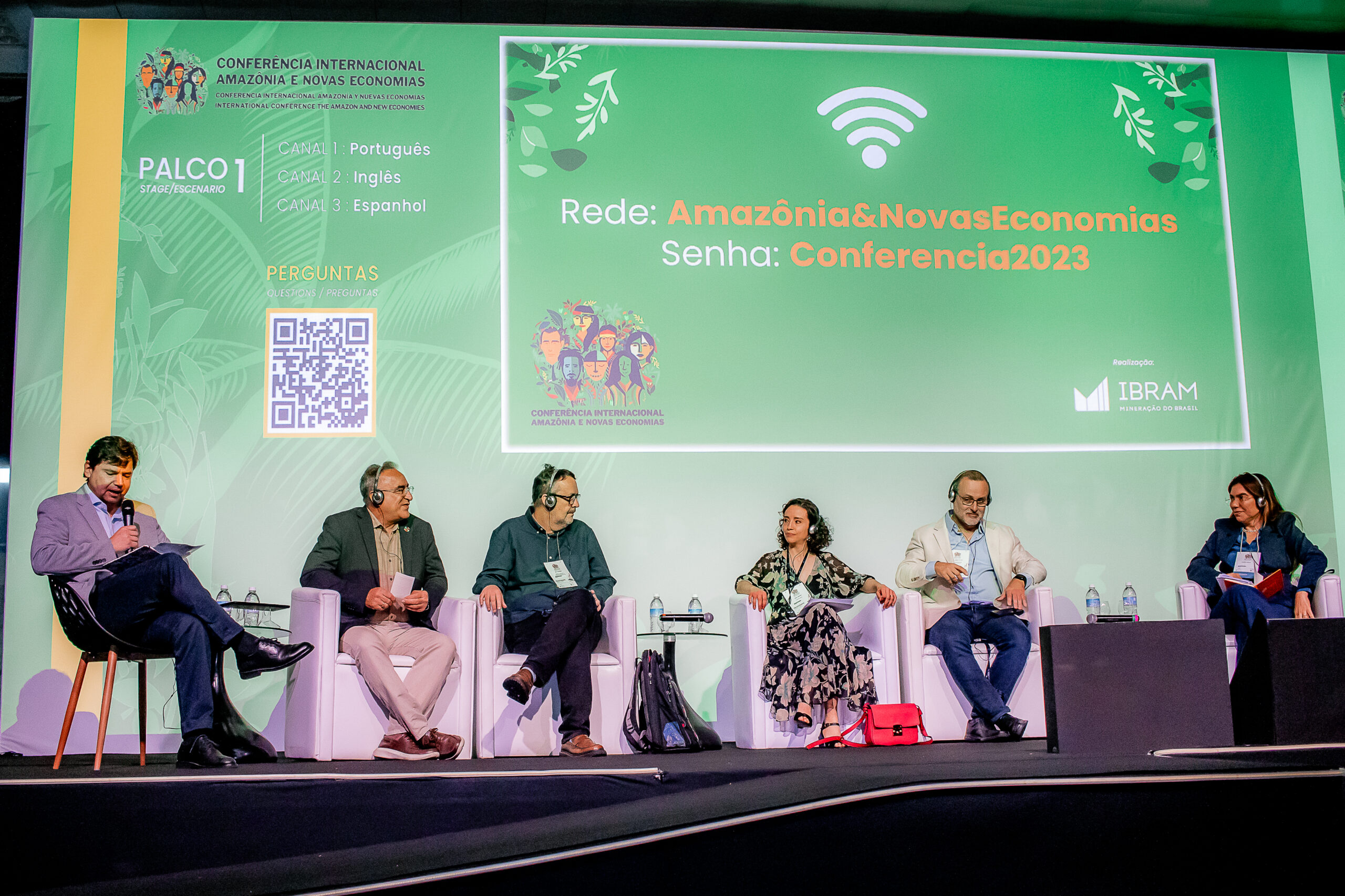Relevance x Quality of Life: the Amazon Paradox

The table brought together public managers and experts in the search for solutions for Amazonian cities
The panel “Cities of the Amazon – Challenges for development” debated the need to find solutions to issues such as transport, public safety, connectivity, social and territorial inequalities, and their relationship with the local economy, from the perspective of public managers and civil society organizations.
Provoked by the opening speech of moderator Rodrigo Perpétuo, executive secretary of ICLEI South America, that, in the 21st century, cities should be the place of dignity, prosperity and enjoyment of life, the panelists highlighted the need to overcome the obstacles that prevent the effective exercise of citizenship in Amazonian urban centers.
Edmilson Rodrigues, mayor of Belém, pointed out that, although it seems simple, the issue is highly complex because “there is an urban dynamic installed on the planet, especially in underdeveloped countries, which makes the dreams of seeing the 17 Sustainable Development Goals (SDGs) come true impossible”. Along these lines, the co-founder of Imazon, Beto Veríssimo, recalled that 76% of the Amazonian population lives in cities where urbanization is precarious and with development indicators far behind the Brazilian average. “If the Amazon were a country, it would be in position 144 in a development ranking, while Brazil occupies 44th place. The people who are guardians of the forest live in conditions that are incompatible with its importance to the world.”
Among the consequences of this scenario is the worsening of violence in the region. As the director-president of the Brazilian Public Security Forum, Renato Sérgio de Lima, pointed out, violence rates in the Amazon are almost 50% higher than the national average. “When we talk about security as a social right, we do have to point out ways to strengthen institutions, but it is necessary, above all, to think about how to face the power of capturing young people who do not have jobs. The keyword is governance, it is the regulation of the territory with the promotion of citizenship in mind”, he said.
Pointing out that social development is a major challenge for this generation, Laura Lizarazo, from Global Risk Analysis – Control Risks, was emphatic in defending that actions in the Amazon region are decisive for companies in an increasingly demanding global environment. “Consumers are increasingly conscious, demanding that companies be clean and reduce their social and climate footprint.”
Finally, Josemira Gadelha, mayor of Canaã dos Carajás, shared the difficulties of managing a municipality that has been experiencing accelerated growth. “We face many challenges that should not be different from those in other cities in the region, such as basic sanitation and poverty eradication. However, people arrive in our city every day. In the last 8 months, just for children, we received 1200 students. So, as politicians, we cannot think about the next elections, but about the next generations.”
About the Conference
The Amazon and New Economies International Conference is promoted by the Brazilian Mining Institute (IBRAM), a non-profit organization that brings together more than 130 companies and institutions that work in the Mineral sector and are committed to protecting the Amazon. IBRAM and its members are committed to innovations in the sector and to disseminating the best business and environmental practices.
The event brings together representatives of the peoples of the forest, civil society, academia, the public and private sectors in the capital of Pará to address issues involving the environment, the economy and sustainable development.
Follow the Conference on social media

